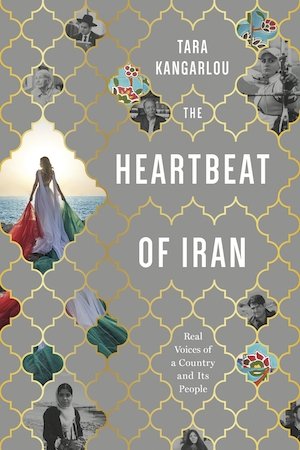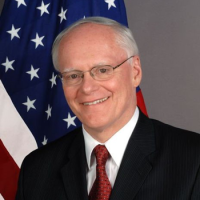Book Talk: The Heartbeat of Iran

On June 4, MEP Director Merissa Khurma spoke with journalist and author Tara Kangarlou about her new book The Heartbeat of Iran. In today’s interconnected global village, beyond the headlines about its nuclear program, Iran and its people remain a mystery to much of the world—especially to those living in the United States and the West. The Heartbeat of Iran takes readers on an unprecedented journey into everyday life in Iran, where we meet the diverse people who make up the country’s delicate socio-cultural, political, and religious mosaic. Through textured portraits of regular Iranians—from a blind Sunni environmental activist to the gay son of a general to the Rabbi who studied in Israel and now lives in Tehran— The Heartbeat of Iran reveals intimate stories of people whose dreams and fears mirror that of millions of others worldwide, and who yearn to join an international community that often views them through the blur of a hostile political fog.
As an Iranian growing up in America, Kangarlou was always pressured to explain herself. “I have to unpack my identity, my people… The idea that Iran is seen through this vilified lens was daunting and exhausting to defend,” noted Kangarlou. The genesis of her book comes from the need to fill the void in conventional narratives about Iran. The prevailing perception of Iran is often centered on its regime and violent episodes that occurred following the 1979 Islamic Revolution. Yet, “[Iran] existed for thousands of years before that, and there is so much history embedded in that. I try to unpack these textures and historical nuances through these stories.”
Kangarlou featured Iranians from communities that are historically subject to essentialist tropes. “Unlike the stereotype picture that exists, there is a vibrant community of women in Iran who, despite the challenges and restrictions, are thriving and working hard,” she noted. In bringing their stories to the forefront, Kangarlou demonstrates Iranian women have agency and often overcome the adversities they face in the domestic, political, and social spheres. Likewise, while Iran suffers brain drain as many young Iranians leave for Europe and the United States, Kangarlou emphasizes, “There are some who remain and who choose to build their own country despite all of the challenges.” These Iranians, she believes, are tied to their sense of belonging and identity in Iran.
To counter misperceptions about Iran and its people, Kangarlou stressed the need for the diaspora to unite and defend their identity beyond the politics. “Each and every Iranian has to be an ambassador of Iran, otherwise their voices will be muddled by politics,” she notes.
Speaker

Introduction

Former ambassador to Iraq and Turkey, and Special Envoy to the Global Coalition To Defeat ISIS
Moderator

Hosted By

Middle East Program
The Wilson Center’s Middle East Program serves as a crucial resource for the policymaking community and beyond, providing analyses and research that helps inform US foreign policymaking, stimulates public debate, and expands knowledge about issues in the wider Middle East and North Africa (MENA) region. Read more
